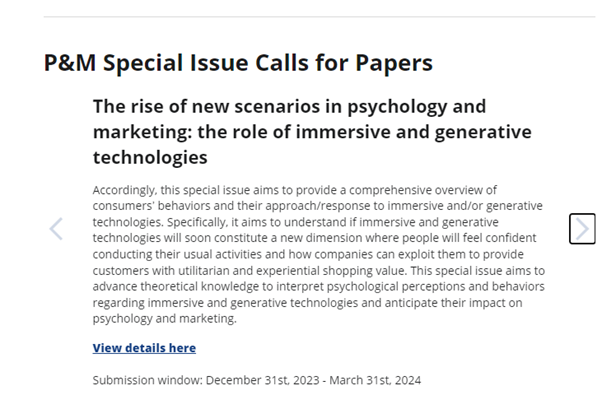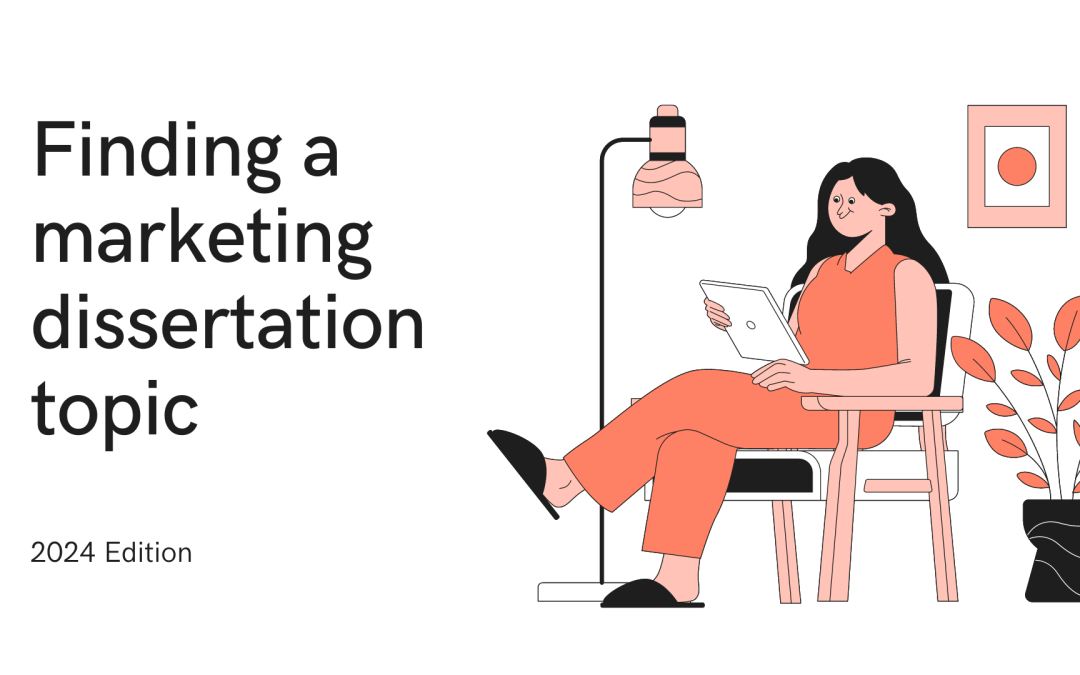Struggling to find a good marketing dissertation topic? You’re not alone. Every year I prepare a guide for my master students on how to find a good marketing dissertation topic. This year is no exception. This guide equips you with actionable strategies and useful resources to land a relevant and interest marketing topic and ace your dissertation.
Uncover Cutting-Edge Research Priorities:
- Marketing Science Institute (MSI) Research Priorities: The MSI publishes every three years what they call their research priorities. This group comprises academics and marketing practitioners, and identified several themes. The latest version of the marketing priorities is the 2022-2024 report that outlines key themes like customer value, omnichannel promotion, and marketing agility. Identify research questions experts deem crucial and that you could potentially develop in your dissertation. All you need to do next is to choose an interesting context (e.g. fashion / tech …etc).
Let existing Literature Reviews and Editors of Journals do the heavy lifting:
- Spot Research Gaps: Explore literature reviews in top journals or look for the topic that interests you on Google Scholar and add the keyword “literature review”. Ideally you want to find something recent (in this case 2022 to now). Most literature reviews will identify research gaps, and many of them will also suggest some research questions.
- Special Issues in Journals: Many Journals run their own special issues on different topics. These topics tend to be timely and where more research is needed. A good start could be Psychology & Marketing, you can scroll down to their Special Issue section and click on one that interests you and they would normally have also some suggested research questions or areas to focus your research.

So for example the special issue on the rise of new scenarios and the role of immersive and generative technologies have the following questions:
- How do individual perceptions and reactions differ between physical and virtual environments?
- Which psychological theories enable the explanation of individuals’ decisions to engage or not in virtual immersive environments?
- What are immersive technologies’ main challenges and opportunities in psychology and marketing?
- What are the ethical and moral issues related to immersive and/or generative technologies?
- What is the role of social presence in immersive environments?
- How do brand perceptions in immersive environments spill over to brand perceptions in the physical reality?
- How do consumers envision consumption and ownership of digital products and/or services in virtual environments?
- To what extent do consumers perceive privacy threats when relating with companies through immersive and/or generative technologies?
- Do generative technologies increase or reduce consumers’ trust in the advice they receive from digital assistants?
- What is the sense of control that individuals perceive concerning Generative AI content, and how does this shape their intentions and behaviors?
- How does Generative AI affect consumers’ search and digital shopping behavior?
- Does Generative AI impact consumers’ privacy concerns when engaging with a marketer?
In addition every special issue already provides some relevant literature that you might want to examine.
Tap into the Expertise of Calls for Papers:
- Journals tend to have Calls for papers (a bit similar to special issues) where they outline themes the journal is looking more research about.
- Facebook Group: Join “Marketing Calls for Papers” on Facebook for a continuous stream of relevant research opportunities.
Beyond the Topic: Crafting a Stellar Dissertation:
- Embrace Theoretical Contribution: Students very often get carried away by the context, but forget this is academic world, and if you’re looking for a distinction you need to make a theoretical contribution. So go beyond merely focusing on a context (e.g. influencers, or immersive tech) but also consider what happens in that context, the phenomenon. Your study should also be examined from a theoretical lens, demonstrating your engagement with existing theories and highlighting your unique contribution. If you’re not sure about what is a theory, you can look at this other article I have prepared.
- Contextual vs. Theoretical Gaps: While exploring new contexts (e.g., TikTok research) is valuable, prioritise identifying a theoretical gap for a impactful contribution.
- Pursue Your Passion: Consider a context relevant to your future career aspirations, be it fintech or fashion marketing. Integrate this element into your dissertation for added significance.
Remember, a captivating topic is just the starting point. Embrace the research process, refine your ideas, and aim for a dissertation that not only meets academic standards but also makes a meaningful contribution to the field.

